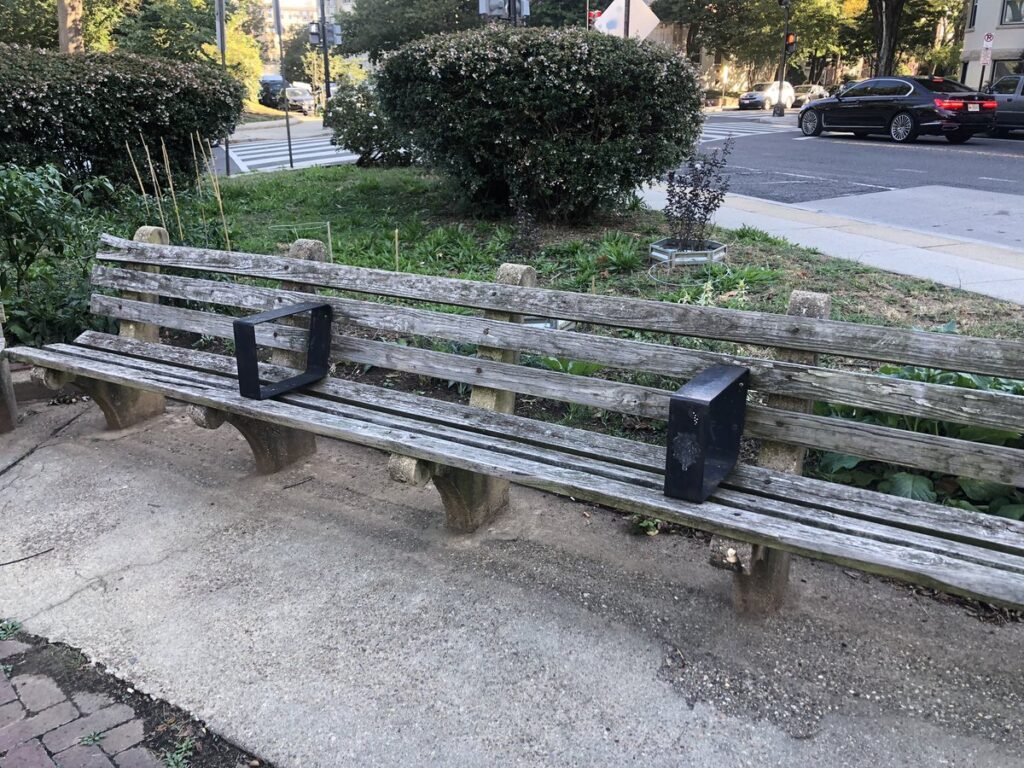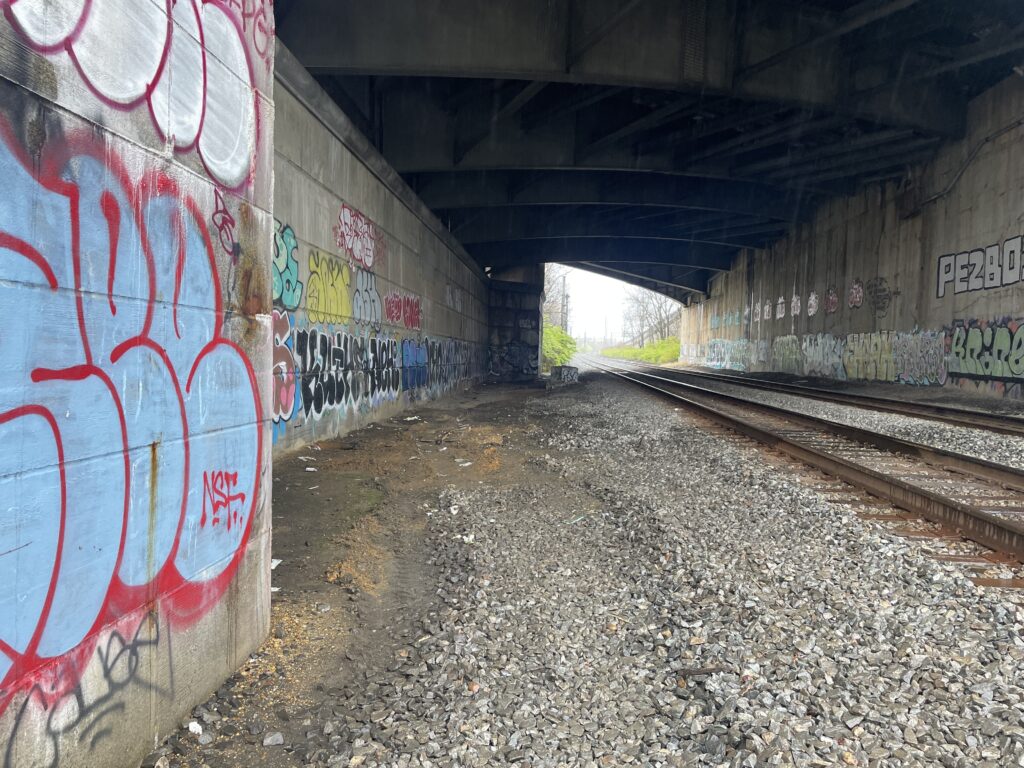Sharon Kelcha’s tormented wanderings came to an end in the darkness of Dec. 12.
At 2:30 a.m., the 55-year-old woman, with no fixed address, was struck and killed by a car as she crossed the Anacostia Freeway, according to a District police report.
Kelcha grew up in Pittsburgh in a troubled home and suffered from severe mental illness for much of her life, according to her sister, Tina Hiteshew, a nurse who still lives in that city.
“She was becoming delusional, paranoid. She wanted to talk to the President, so she came to Washington,” said Hiteshew.
Kelcha’s was one of the 44 names read at a Dec. 21 vigil remembering homeless people who died in and around the District in 2010. The 21st Annual National Homeless Persons’ Memorial observance drew a small but devoted crowd to the trampled snow outside the New York Avenue Presbyterian Church in Northwest Washington.
As candles shuddered in the cold wind, the Voices of the Streets, a choir of homeless men and women, sang “Amazing Grace.” Amid the sounds of traffic on the busy downtown corner, the names of the dead were read by Steve Thomas, of the National Coalition for the Homeless’ Faces of Homelessness Speakers’ Bureau.
The service was organized by the National Coalition for the Homeless and coordinated, in more than 150 cities around the country.
In many cases the lives of homeless people are cut short prematurely. Studies show that hypothermia and exposure claim surprisingly few lives compared to acute and chronic medical conditions, according to a 2005 review of scientific literature conducted by the National Health Care for the Homeless Council. Substance abuse and mental illness also increased the risk of death, the study found.
“The average age of death in the studies reviewed is between 42 and 52 years, despite an average life expectancy of almost 80 years in this country,” the review concluded.
Disabling conditions, including mental illness, continue among the District’s homeless residents, according to the 2010 Homeless Enumeration conducted by the Metropolitan Washington Council of Governments. In the District, 23 percent of literally homeless adults, those with no permanent supportive housing, reported mental health issues. Of the 6,539 homeless men women and children counted, 567 reported suffering from severe mental illness.
So did Kelcha. She worked a variety of jobs, including a stint in a cafeteria. Her difficult marriage ended with the death of her husband about six years ago. Hiteshew said she tried to help her sister but it was not easy. There were limits to what her family was able to do.
“A couple of years ago, she came to my steps. She wanted a shower,” Hiteshew recalled. “‘I said ‘I’m gonna help you. Let’s go to church.’ I ran to get my shoes. She was gone.”
Later, Kelcha turned up at a neighbor’s house, pounding on the door begging, “Why won’t you let me in?”
She lived for awhile at a residential facility for people with disabilities in Pittsburgh before making her way to Washington last summer, according to Hiteshew.
Mental health workers and advocates say that the District holds a unique attraction for some in the throes of mental illness, who are drawn here in search of redress from the federal government or an audience with the President.
In Washington, Kelcha received care at the Comprehensive Psychiatric Emergency Program, or CPEP, which offers psychiatic services, mobile crisis services and observation beds in a facility located at D.C. General Hospital, Hiteshaw.
“I don’t know if she was leaving that unit when she was walking on the highway,” she said. A staff person at CPEP said she was not able to confirm or deny that Kelcha was there, due to patient confidentiality rules.
Kelcha was struck by a southbound Toyota Camry while walking in the middle of the freeway in Southeast Washington. The driver and a passenger stayed on the scene, according to police, who identified the driver as Brian Mitchell Blake, 24, of Fort Washington Md. No charges have been filed in the case, but police are continuing to investigate, according to the office of the United State Attorney.
“I feel terrible for the young man who hit her,” said Hiteshew. “I’m not saying my sister wasn’t at fault. She shouldn’t have been walking in the highway. But she was in pain.”
The deinstitutionalization movement that began in earnest decades ago placed the spotlight on poor conditions and inhumane treatment in mental institutions and gave rise to policies that emphasized upon community-centered housing and care for the mentally ill. As the result of a lawsuit dating back to 1974, the city’s Department of Mental Health is required to report to the U.S. District Court on the progress it has made in providing community-based treatment alternatives to hospitalization for people with mental illness. The mandate is a complex one. Affordable housing and other resources have often been been lacking, and the needs of each patient are different.
“The challenge is striking the right balance between individual civil liberties and the need for appropriate care,” said Scott McNeilly, staff attorney for the Washington Legal Clinic for the Homeless. “There isn’t a one-size fits all approach.”
Permanent supportive housing has been hailed as a solution for getting people with a range of disabilities off the streets, out of emergency shelters and into safe places. An estimated 1,200 people are currently housed in supportive housing units, scattered around the city through the District’s program, but many more remain homeless and the city’s budget is severely strained, McNeilly said. The emphasis is upon “holding ground, not losing units.”
At the vigil on the night of Dec. 21, U.S. Department of Housing and Urban Development Secretary Shaun Donovan reflected upon efforts by the Obama Administration and 19 government agencies to move forward with a federal strategic plan to end homelessness.
“Tonight is a night of remembrance and affirmation,” added Donovan. Standing in the darkness on the first night of winter, the longest night of the year, the housing secretary tried to strike a note of hope.
“Homelessness is a problem we can solve.”







